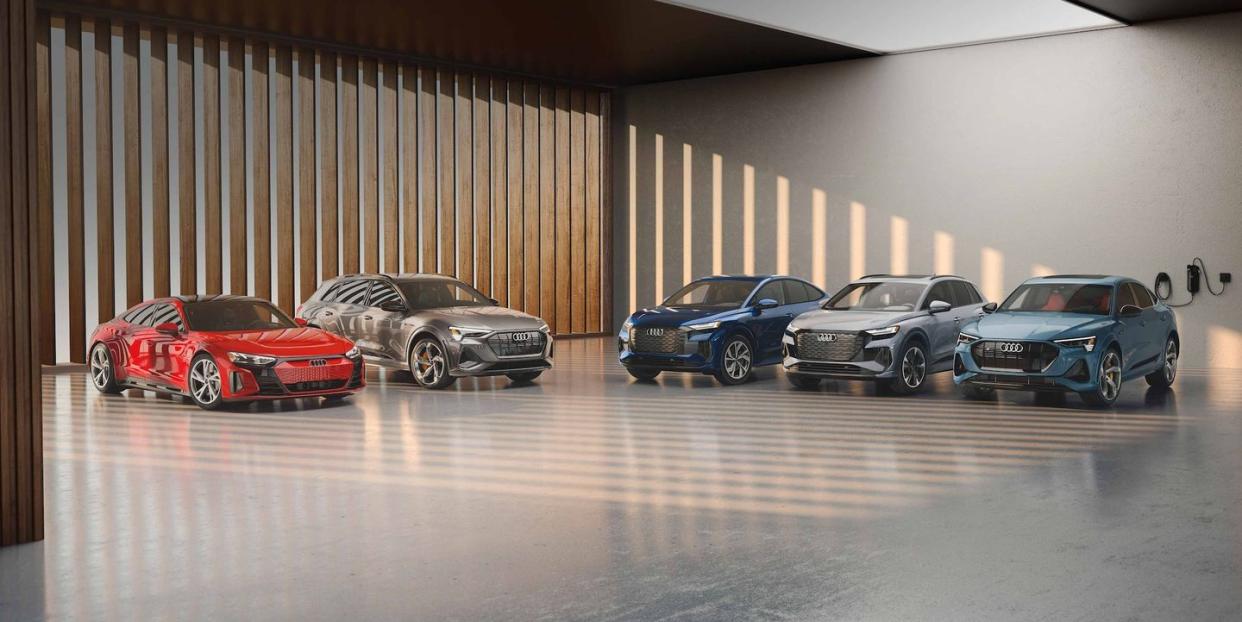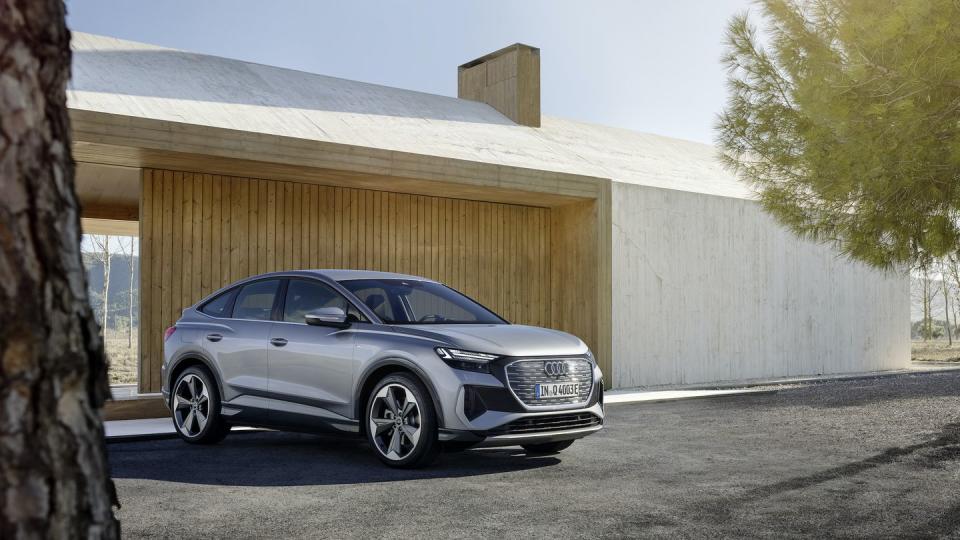Audi Claims EV Model Dominance in the US—Beating Even Tesla

Audi reaffirms its commitment to going all electric, and so far counts five models in its North American lineup, with more than 8000 sold through the first half of 2022.
Through 2026, when the automaker say it will introduce only EVs, Audi will invest 19 billion euros in electrification.
It also says that 2033 will be last year for internal-combustion vehicles.
Audi of America President Daniel Weissland wants you to know that his company is all-in when it comes to electric vehicles. “They are a big passion of mine,” he told Autoweek. “I really believe in them.”
Audi is making a big claim, that with a U.S. lineup now including five models, it outnumbers every other automaker—even Tesla. Those five are the e-tron, e-tron Sportback, e-tron GT/RS, Q4 e-tron, and Q4 Sportback e-tron. Tesla might quibble, since it has four cars: the Model 3, the X, the Y, and the S, all with at least one other variant. But Weissland says its five are all distinct models with different body styles.
As of August, Tesla had 68 percent of the U.S. electric car market, but that was down from 79 percent for the full year of 2020 (and 69.95 percent in 2021). As other automakers add models, they’re slowly grabbing larger volumes of sales. From January to June of 2022, Audi sold 8009 electric cars to American customers, giving it the best U.S. half-year EV performance to date.
“Our strategy is to have as many customers in electric vehicles as possible,” Weissland said. “We commit ourselves to EVs to protect our planet and secure the future for our children. Through 2026, Audi will invest 19 billion euros in electrification. From 2026, we will introduce only all-electric models, and 2033 will be our last year for internal-combustion vehicles.”

There has been some speculation that the Volkswagen Group (of which Audi is a part) is supporting a rear-guard action for the carbon-neutral synthetic gasoline known as e-fuel. This product, which can run in today’s internal-combustion engines, is one way to keep older cars on the road after bans—from the European Union and California, among others—go into effect around 2035. As reported in Autoweek, Porsche is an investor in HIF Global, which is building several e-fuel plants globally, including one in Texas. The VW Group’s new chairman, Oliver Blume, was a supporter of e-fuel at Porsche, but has backed away somewhat since assuming his new role.
Weissland is unequivocal. “Our future is electric,” he said. “Yes, there are some technologies that will work for niche products. But our focus and strategy at Audi and the whole VW Group haven’t changed. Battery electric vehicles will make the difference.”

Audi’s EV lineup is SUV-heavy, and Weissland said that’s a response to marketplace demands. “Eighty percent of our premium customers say they want SUVs,” he said. Station wagons have a role in Europe that is minuscule in the U.S., he said, but in Europe also SUV demand is high.
Autoweek recently speculated on the dearth of convertible EVs, and Audi could presumably produce one along the lines of the 2022 droptop offered in the lineup of its slowly disappearing TT model. There might be a new electric Audi sports car ahead. Audi showed its sporty Skysphere concept at Pebble Beach in 2021, and brought it back with two other Sphere prototypes this year. That’s one way a new Audi EV sports car could go, with a ragtop or not.

A convertible is not a priority for Weissland, who’s aware of the segment’s small sales numbers. “We just launched the Q4 Sportback e-tron, and we’re concentrating on that,” he said.
“Range anxiety does exist, but it’s becoming less of an issue,” Weissland said, adding that the VW Group’s Electrify America (launched as part of the diesel settlement) is helping address it with 3500 individual public chargers now, and as many as 10,000 in North America by 2026. Audi e-tron models come with free charging via that network. The e-tron GT and Q4 e-tron each have around 240 miles of range.
Weissland himself has been a confirmed EV driver for the last three years, and says he loves the acceleration and “the sound of silence.” And, he said, “It’s so nice not to see a gas station again.”
Share your thoughts on Audi’s plans to go all electric, and how you think it will fare against Tesla’s dominance in the EV market.

